It was the trip of a lifetime – and Niall Menzies was having an absolute blast.
Niall, originally from Birnam in Perthshire, had travelled to South Africa where he helped in his friend’s garden, found a girlfriend, and generally had a whale of a time.
Aged 19, the former Breadalbane Academy pupil fell in love with the country and dreamed of returning to live there permanently.
But just 24 hours before he was due to fly back to Scotland after his six-month stay, disaster struck.
Niall had been out drinking and partying and was on the way back to his digs with four friends.
His mum Evelyn blames another driver’s “road rage” for forcing the car they were travelling in off the road and rolling 10m down a cliff.
It landed on its roof, with the sea lapping through the windows.
Massive brain injuries
The driver and other passengers escaped almost unscathed but Niall suffered massive brain injuries.
Evelyn and her husband Duncan were warned to expect the worst with medics indicating their critically injured son might not survive.
Niall spent six weeks in a coma in Groote Schuur Hospital in Capetown before he was stable enough to fly home.
He spent another seven weeks at Dundee Royal Infirmary before he regained consciousness.
While doctors said Niall was lucky to be alive they warned he would never walk again.
They hadn’t counted on Niall’s determination.
Major expedition
Fast forward 26 years and Niall, now 45, is gearing up to trek to Everest Base Camp – a major undertaking by anyone’s standards.
He’ll be joining a group of other people with severe brain injuries led by Dunkeld-based filmmaker and adventurer James Lamb.
The expedition will be the subject of a documentary, due to be released in 2025.
Niall, who has a 20-year-old son, Steven, is more than up for the challenge.
“You can achieve anything if you put your mind to it,” he tells me. “It’s all in your head.”
Horror crash
It’s been a long road to recovery,
“I fell asleep in the back of the car and woke up in Dundee 13 weeks later,” he says.
“I was only four and a half stone. I couldn’t walk, talk or feed myself. I had major brain stem trauma.”
Niall had travelled to South Africa with a friend he’d met while working at the Birnam Hotel.
“The guy behind the bar was South African,” he elaborates. “He was going home and I went back with him to hang out for six months.
“If the accident hadn’t happened, I’d be living there now.”
Lives changed forever
It was a distressing time for Niall’s parents. His mum, Evelyn, 73, says it broke her heart seeing her son lying unconscious.
“He wasn’t expected to live during that first 24 hours. He didn’t have visible injuries although he had a broken collar bone and cuts and bruises.
“Niall’s eyes were dead; there was no light in them. My husband used to say, ‘there’s nobody home’.
“But then one day there was a wee sparkle.”
Huge determination
When Niall was finally able to speak, which was a very slow process, he showed how determined he was, telling doctors: “I. Will. Walk. Again.”
After two months of gruelling physiotherapy he was on his feet and walking.
It wasn’t all plain sailing, though.
Evelyn recalls Niall could become “very aggressive”, shouting and swearing out of frustration at not being able to do things he’d taken for granted.
“He got very angry when we didn’t understand him – his speech wasn’t very good, especially when he got tired,” she recalls.
Knock-on effects of severe brain injury
When Niall finally returned home to Birnam in November that year – seven months after the accident – it was “like having a child again but in a grown-up body”, says Evelyn.
That was a problem as people treated him like an adult and expected him to behave like an adult – but he’d lost many of his social skills.
While he used to be calm, thoughtful and helpful, his personality had changed and he expected his parents to do things immediately.
If they didn’t, he would throw things and, in the early stages, hit out.
Niall started attending The Walled Garden Project, which offered horticulture, gardening skills, woodland conservation and rural crafts. (He had completed an HNC in Computer aided Landscape Technology prior to leaving for South Africa).
From there he started working at Perth’s Branklyn Gardens and later got a job as a greenkeeper at Dunkeld and Birnam Golf Club.
He also went back to college to complete his qualification in Sports Turf at Cupar’s Elmwood College.
But his body took a long time to heal as, due to his muscles contracting, he had to have hip surgery.
Help from Headway
As the dust settled, Evelyn contacted brain injury association Headway Perth and Kinross to see if they could help.
She and Niall went to workshops and found it was good to talk to fellow acquired brain injury (ABI) survivors about their experiences.
Evelyn is now the chair of Headway Perth and Kinross.
“It’s not easy caring for someone with a brain injury,” she says.
“A lot of relationships break up as the person they knew is not the same.
“They can change within seconds from a kind, helpful person to someone who shouts and swears.
“Brain injury is a hidden illness. You can’t see the person has a problem.”
First time feat
A member of Blairgowrie Hillwalking Club, Evelyn is joining Niall in November on the expedition to Everest Base Camp, along with five others with severe acquired brain injuries.
It’s believed this feat has never before been achieved.
So how does Perth-based Niall – who also volunteers as a touch judge for Perthshire Rugby – feel about it?
“I’m really excited,” he enthuses. “I keep pretty fit.”
From Birnam Hill to Everest
In terms of training, Niall’s been up Birnam Hill with his mum, James Lamb and another person heading on the Everest trip.
“I’m quick!” he laughs. “I’m always ahead of folk. My legs are longer than others.
“Everest will be a first for all of us with severe brain injuries.”
The Everest expedition is the latest challenge in a series for James Lamb. He’s the founder of the Little Sherpa Foundation, a charity he set up with the help of his friend Tashi Lama in response to the Everest Base Camp disaster in 2014.
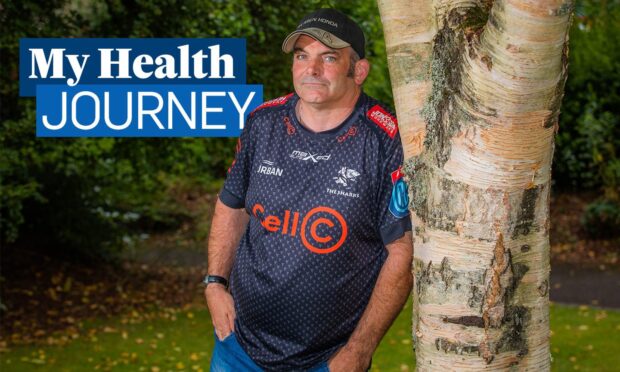
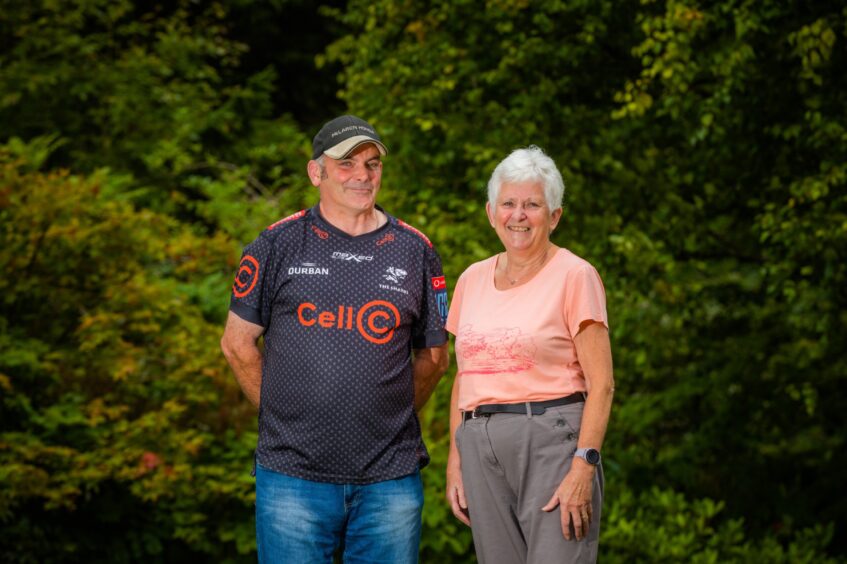
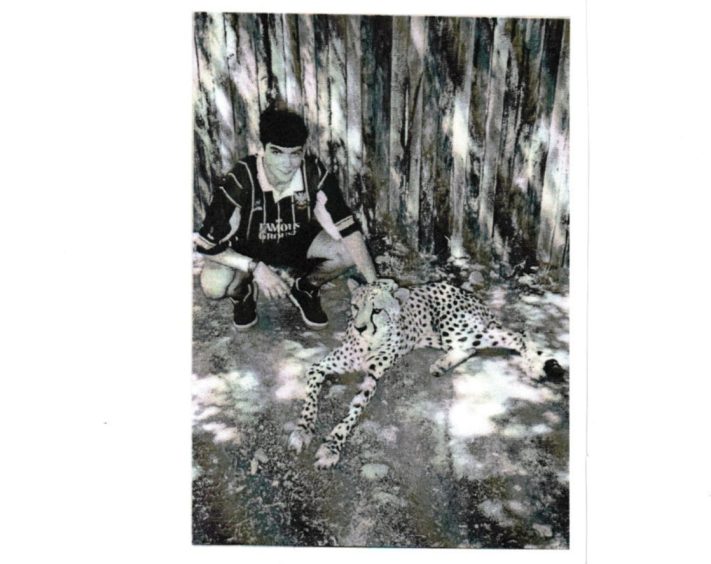
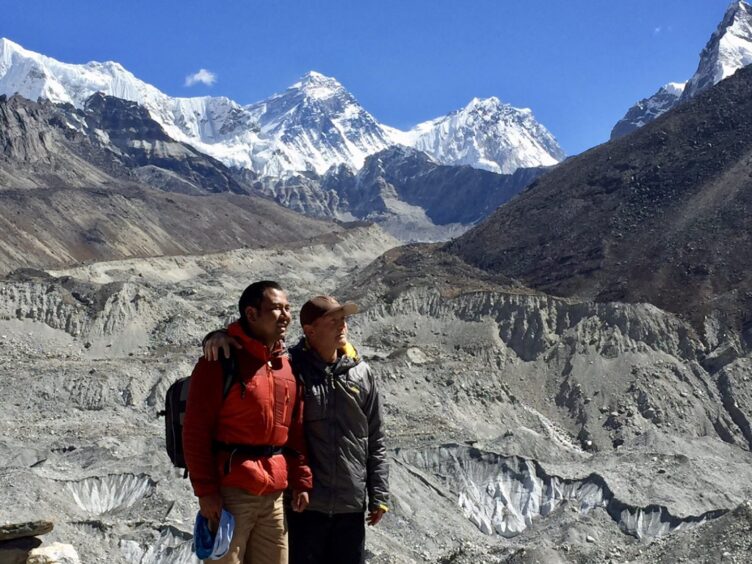
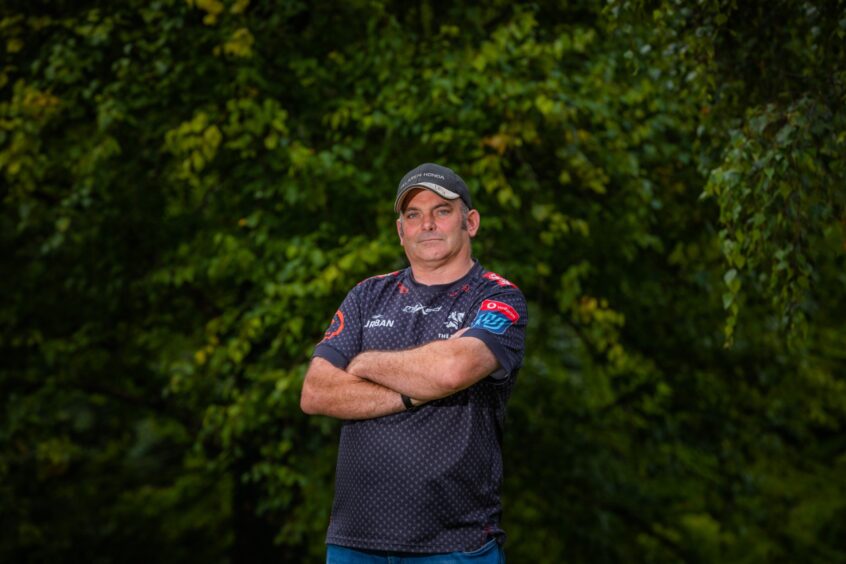
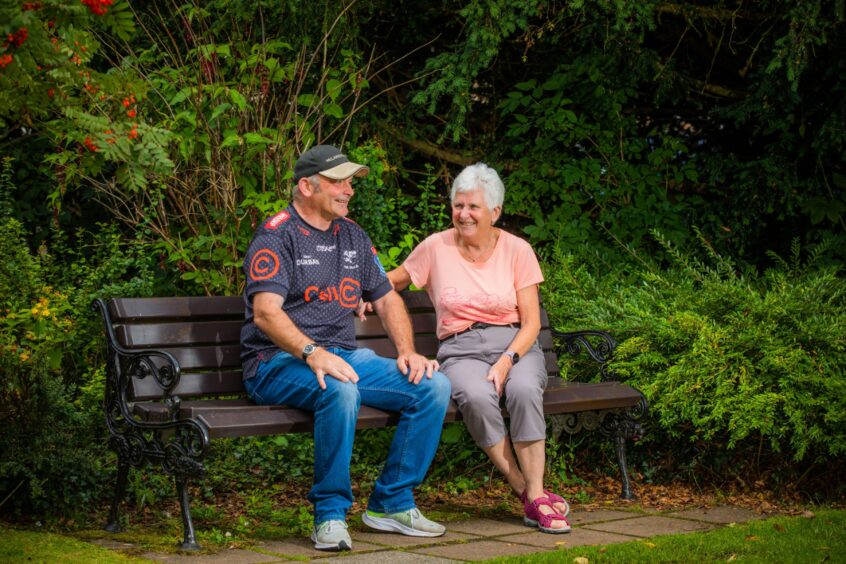
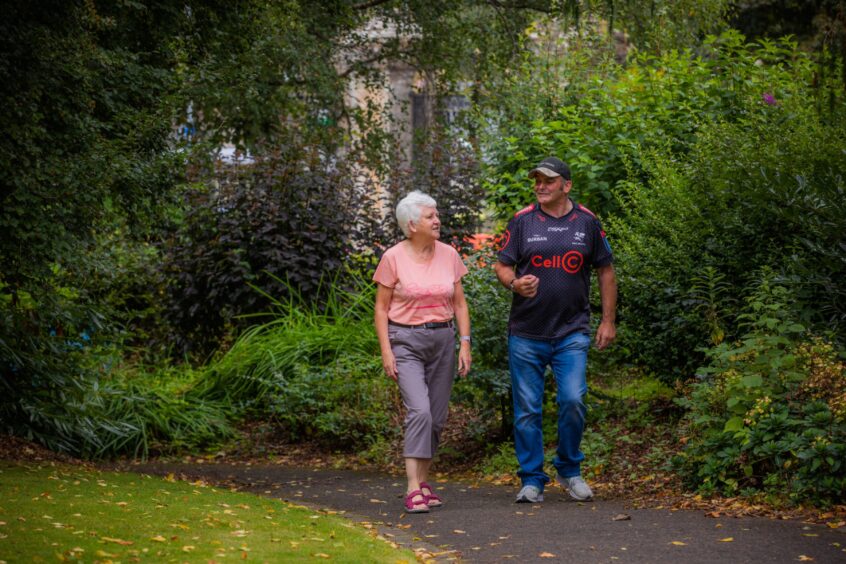
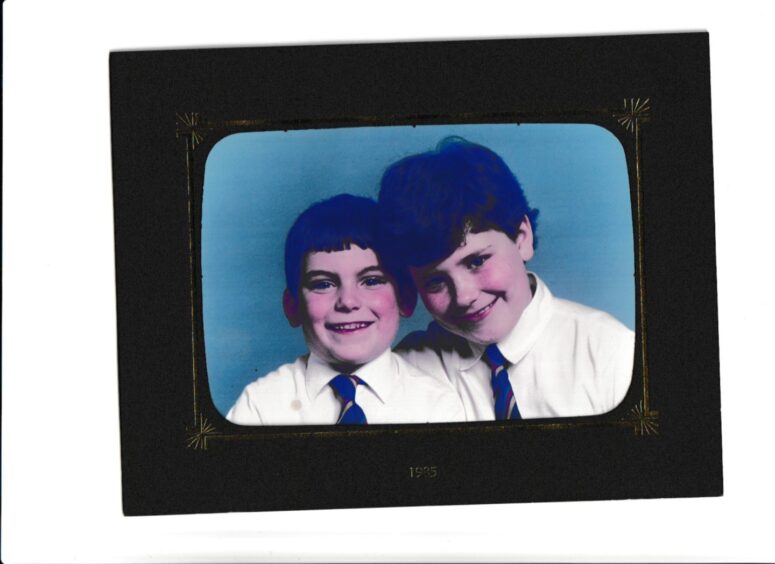
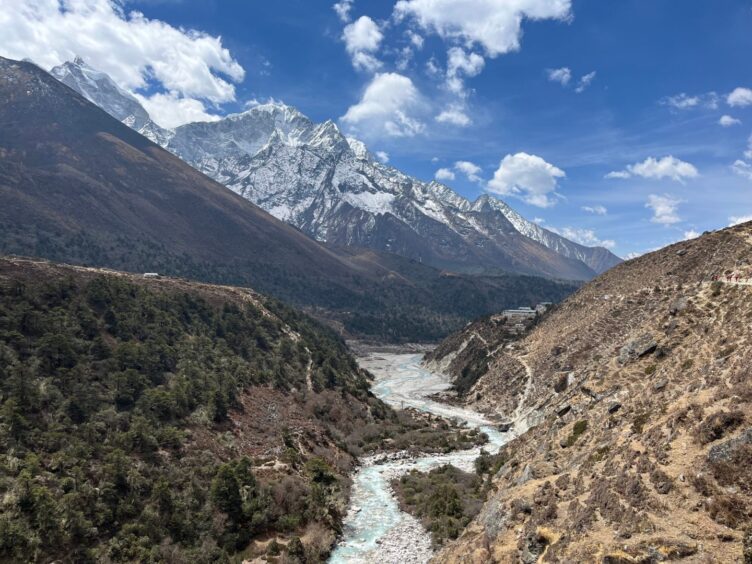







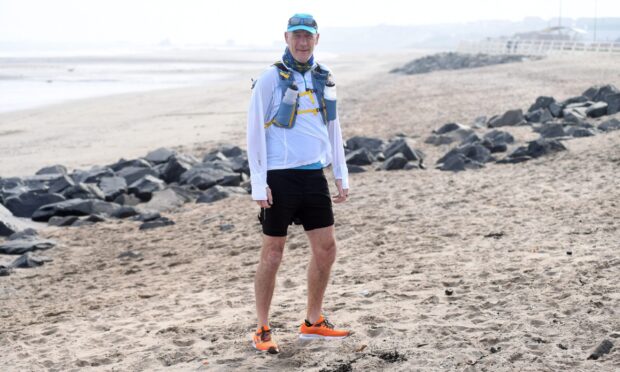
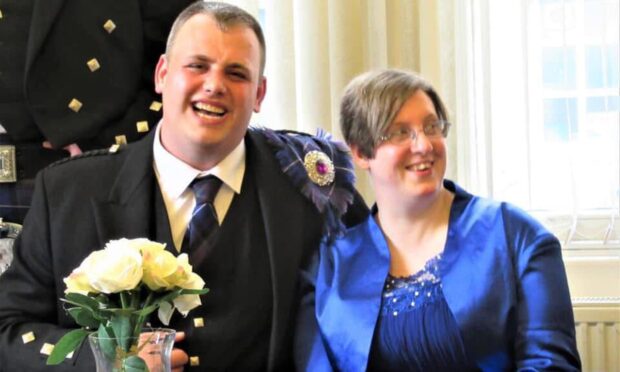
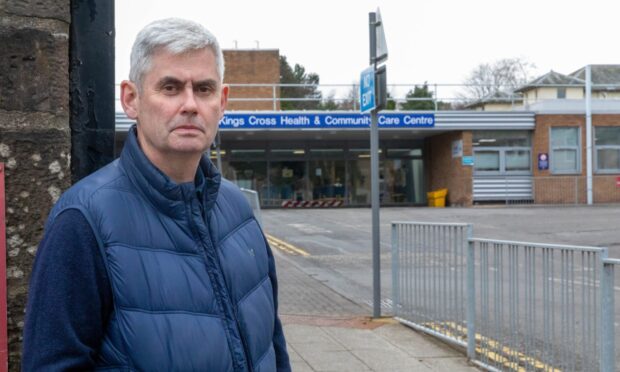
Conversation